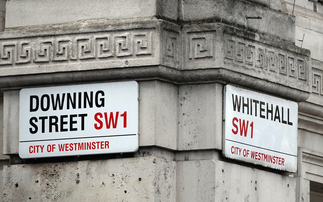It took Chancellor George Osborne just under an hour to deliver his third Budget speech. Here it is in full...
Mr Deputy Speaker, this Budget rewards work. Britain is going to earn its way in the world. There is no other road to recovery. This Budget supports working families and helps those looking for work. It unashamedly backs business. And it is on the side of aspiration: those who want to do better for themselves and for their families. This Budget reaffirms our unwavering commitment to deal with Britain's record debts. But because we've already taken difficult decisions, this can also be a reforming Budget that seeks to repair the disastrous model of economic growth that cr...
To continue reading this article...
Join Professional Adviser for free
- Unlimited access to real-time news, industry insights and market intelligence
- Stay ahead of the curve with spotlights on emerging trends and technologies
- Receive breaking news stories straight to your inbox in the daily newsletters
- Make smart business decisions with the latest developments in regulation, investing retirement and protection
- Members-only access to the editor’s weekly Friday commentary
- Be the first to hear about our events and awards programmes






